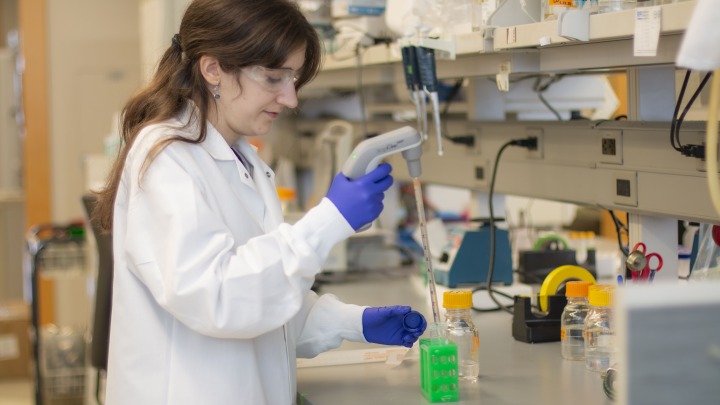
Michigan Life Sciences Fellows program welcomes newest cohort remotely
While many U-M labs were closed, new and current fellows created opportunities to strengthen their network and develop professional skills
When the University of Michigan ramped down most of its research programs in mid-March 2020, the third cohort of Michigan Life Sciences Fellows was just ramping up.
Only three of the six new cohort members had arrived on campus before U-M paused most laboratory research activities in response to the COVID-19 pandemic. Two more have started their new positions since then, and one more will arrive this summer, in the midst of the university’s gradual research re-engagement process.
The Michigan Life Sciences Fellows program is designed to recruit exceptional early-career scientists and provide the resources they need to prepare for ground-breaking independent research careers. The program — a partnership across the U-M Medical School, Life Sciences Institute, College of Pharmacy, and College of Literature, Sciences, and the Arts, with funding support from the U-M Biosciences Initiative and donors — provides fellows with a generous compensation package and funding for research and travel, along with skill-building resources in areas like lab management, scientific writing and oral presentations.
The program also fosters another valuable resource for its fellows: a built-in network that connects new fellows with both their own cohort and previous cohorts. This network has become particularly beneficial in recent months, as established fellows transitioned away from the bench and new fellows navigated joining new lab groups.
In late March, all fellows met with program staff to discuss plans for how the group could use the closure to further their professional development and support one another. From the initial conversation sprung ideas for small-group discussions and regular whole-group meetings.
“I think we all have really benefited from the connection we have to other peers in the program,” says Brittany Morgan, Ph.D., a May-Walt Michigan Life Sciences Fellow at the U-M Life Sciences Institute and member of the program’s first cohort. “It was important to us to ensure that connection didn’t stop just because we couldn’t be onsite, and especially to ensure that the connection was in place as our newest fellows are adjusting to their new positions and establishing new research projects.”
The group has continued to connect weekly, welcoming new fellows as they arrive. Fellows have taken turns presenting brief overviews of their research to practice speaking to interdisciplinary audiences and providing feedback to peers who are preparing for more formal presentations for fellowships and job talks.
The frequent exchange of advice and questions between new and established fellows has demonstrated the power of this community, providing a foundation for knowledge and idea sharing. And as U-M re-engages research activities over the coming months, the third cohort of fellows will build on this foundation to address important scientific questions in their labs.
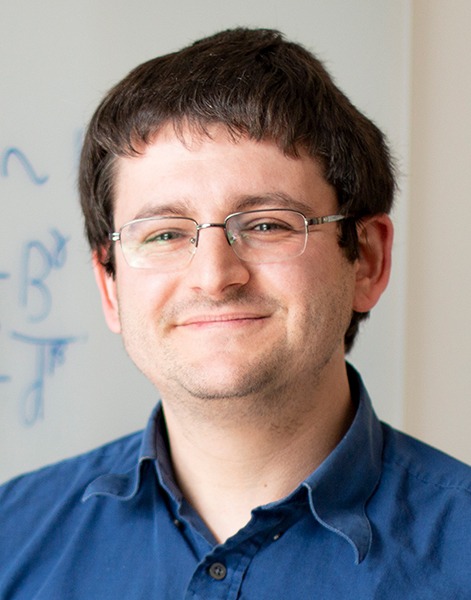
Meet the newest fellows:
Michael Kalyuzhny, Ph.D.,comes to U-M from the Hebrew University of Jerusalem, where he earned his master’s in ecology, evolution and behavior and his doctoral degree in ecology. Throughout his studies, his research has focused on understanding the processes that shape biological diversity and the dynamics of ecological systems. Working with Annette Ostling, Ph.D., in the LSA Department of Ecology and Evolutionary Biology, Kalyuzhny will use a combined theoretical-statistical approach to determine how demographic trade-offs, pathogens, herbivores and environmental changes influence tree species diversity across forests.
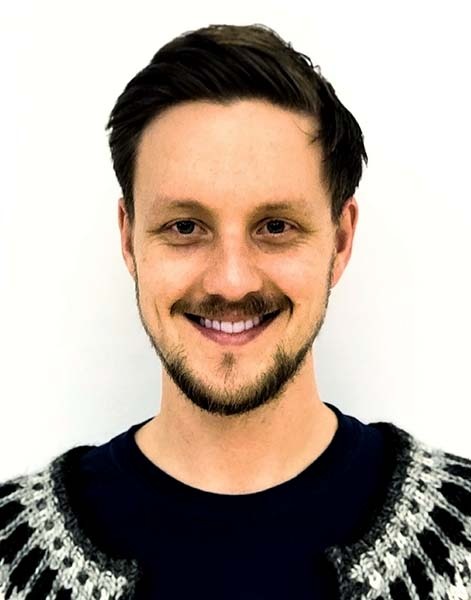
In the U-M Medical School Department of Microbiology and Immunology, Einar Olafsson, Ph.D., is working with Vernon Carruthers, Ph.D., to identify mechanisms of host-pathogen interactions and detect new virulence genes in the human parasite toxoplasma. He hopes that gaining further insights into the biology that underlies toxoplasma infection will help ameliorate the disease in at-risk groups and shed light on the infection’s role in psychiatric disorders. Before coming to U-M, Olafsson earned his M.Sc. in biology from Uppsala University and his Ph.D. in molecular biosciences from Stockholm University in Sweden.
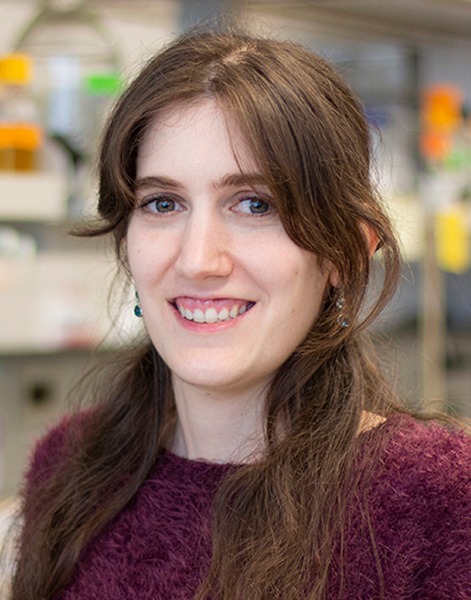
Pilar Rivero Rios, Ph.D., earned her master’s and doctorate degrees from the University of Granada, Spain. As a graduate student, she investigated how a genetic mutation associated with Parkinson’s disease inhibited cells’ ability to properly distribute proteins and other molecules throughout the cell, through a process called membrane trafficking. At the U-M Life Sciences Institute, she is working with Lois Weisman, Ph.D., to explore new pathways and mechanisms through which altered membrane trafficking in neurons leads to disease. Rivero Rios has been named a May-Walt fellow, supported by a fund established by U-M alumni Michele D. May & David R. Walt to help launch innovative scientists into groundbreaking careers.
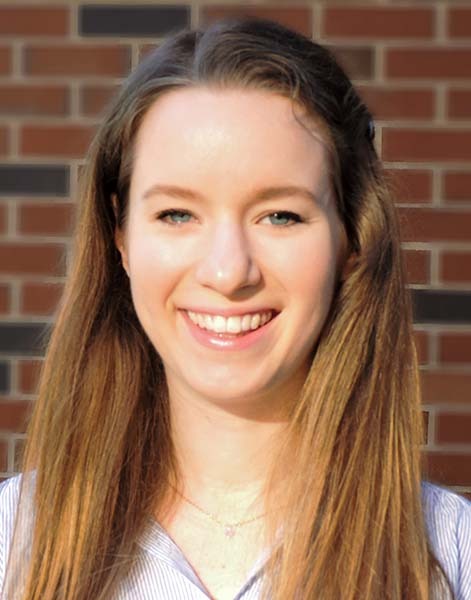
Catherine Scull, Ph.D., completed her graduate studies at the University of Alabama at Birmingham, where she studied an enzyme responsible for synthesizing ribosomal RNA and examined how inhibition of ribosomal RNA synthesis might be used as a cancer therapeutic strategy. In the lab of Nils Walter, Ph.D., in the LSA Department of Chemistry, Scull will study RNA elements called riboswitches, which are essential for the survival of bacteria. Because riboswitches are rarely found in other organisms, they present novel targets for antibacterial therapeutics.
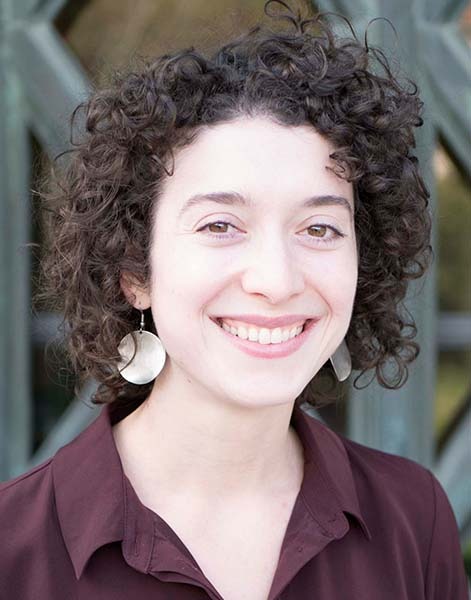
As a graduate student at the University of California, Berkeley, Carolyn Walsh, Ph.D., discovered that one type of white blood cells plays an unexpected role in initiating chronic itch and inflammation in a mouse model of eczema. In the lab of Ormond MacDougald, Ph.D., in the Medical School Department of Molecular and Integrative Physiology, Walsh will explore how signaling between the immune system and the nervous system drives obesity-related inflammation.
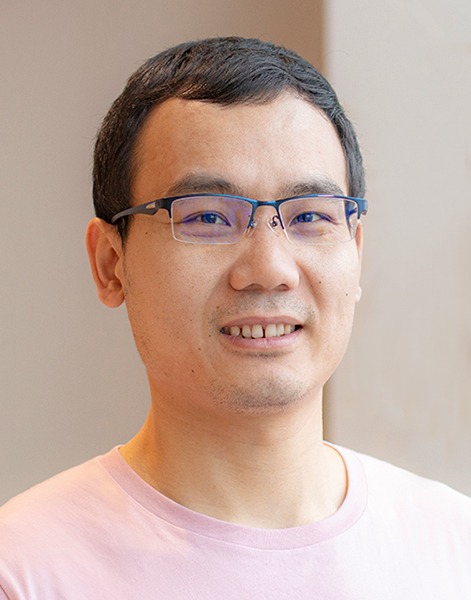
Mingmin Zhang, Ph.D., earned his doctoral degree from the Tsinghua University School of Life Sciences in China. As a graduate student, he studied mechanosensation using a combination of genetic, behavioral, imaging, and electrophysiological approaches. At the U-M Life Sciences Institute, he is now working in the lab of Shawn Xu, Ph.D., to investigate sensation through a neurological focus, with the goal of identifying novel molecular sensors that detect a wide variety of sensory signals. Zhang has been designated as a Willis Life Sciences Fellow at the LSI, supported by a bequest to the Life Sciences Institute from U-M alumna Rita L. Willis (A.B., 1945).


